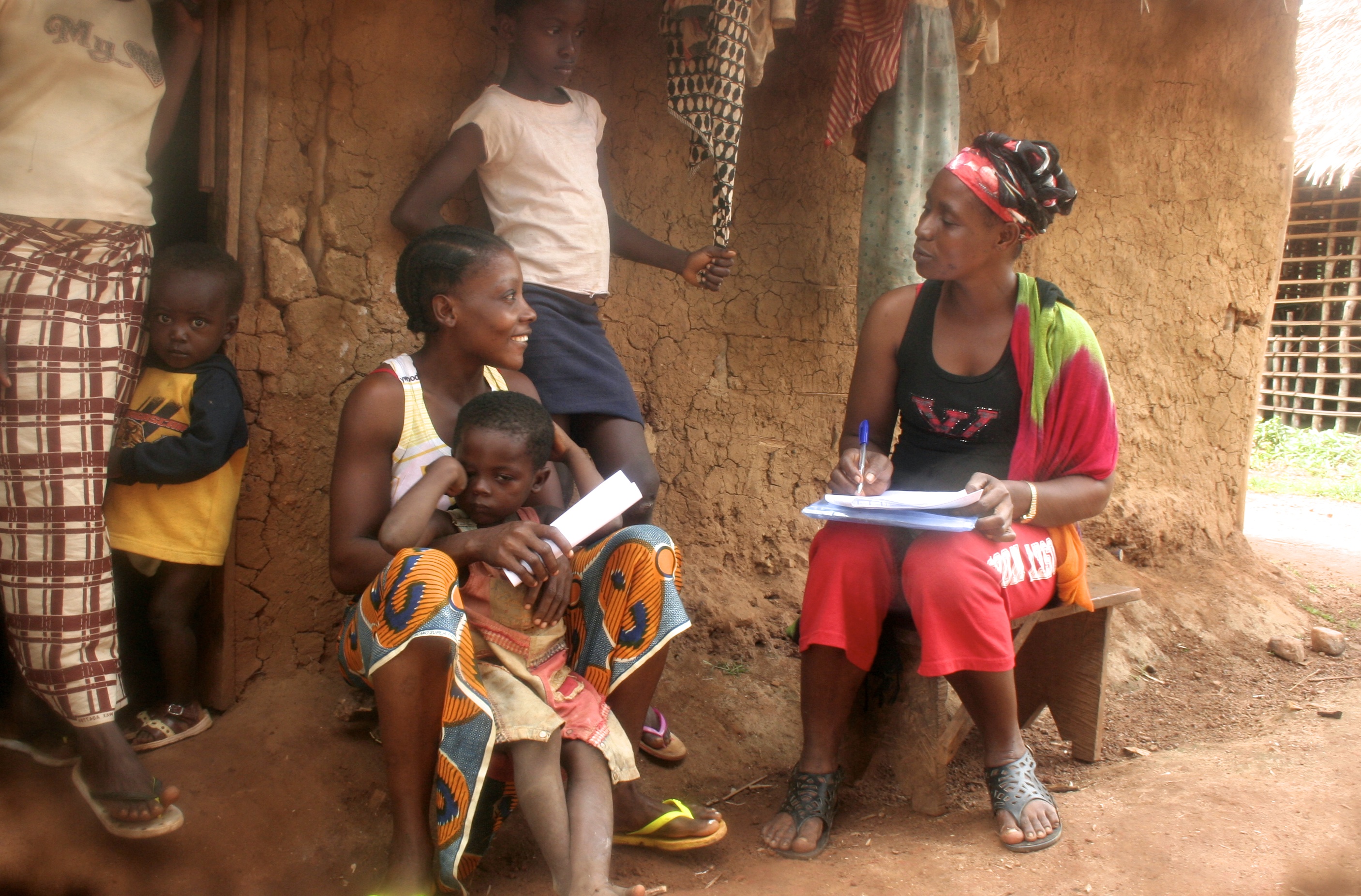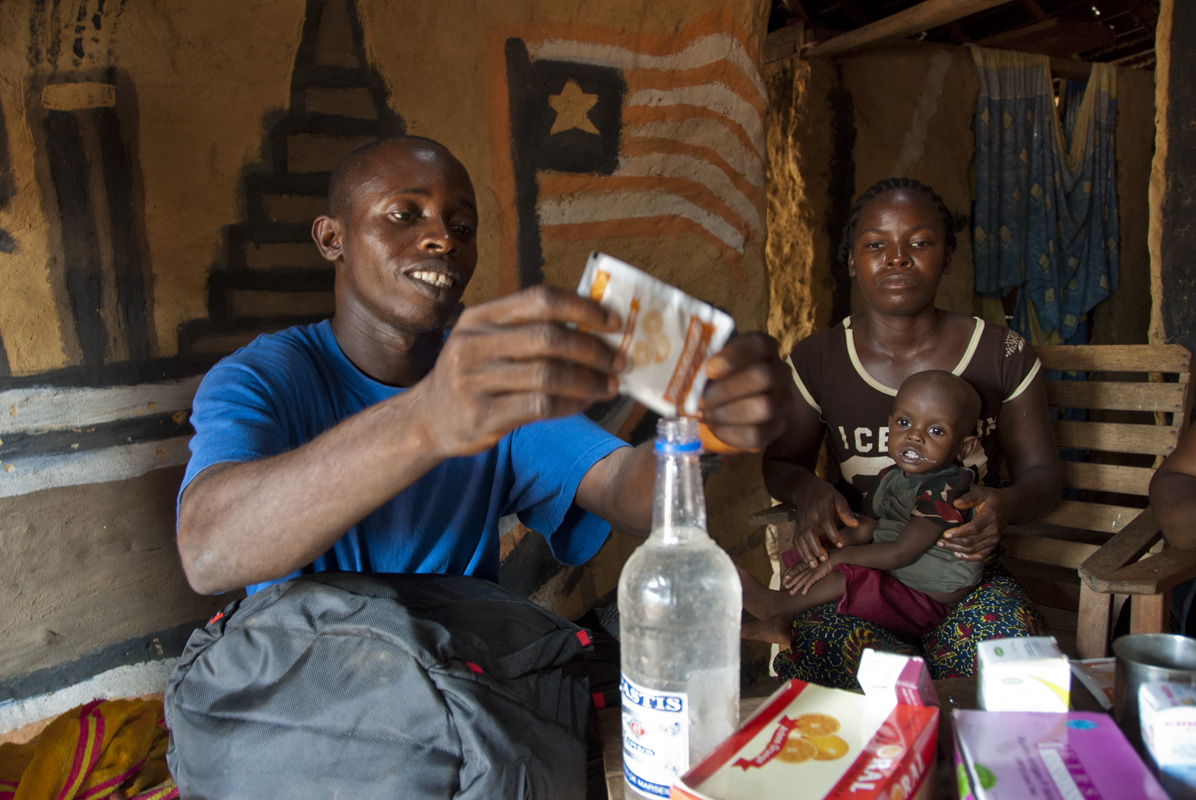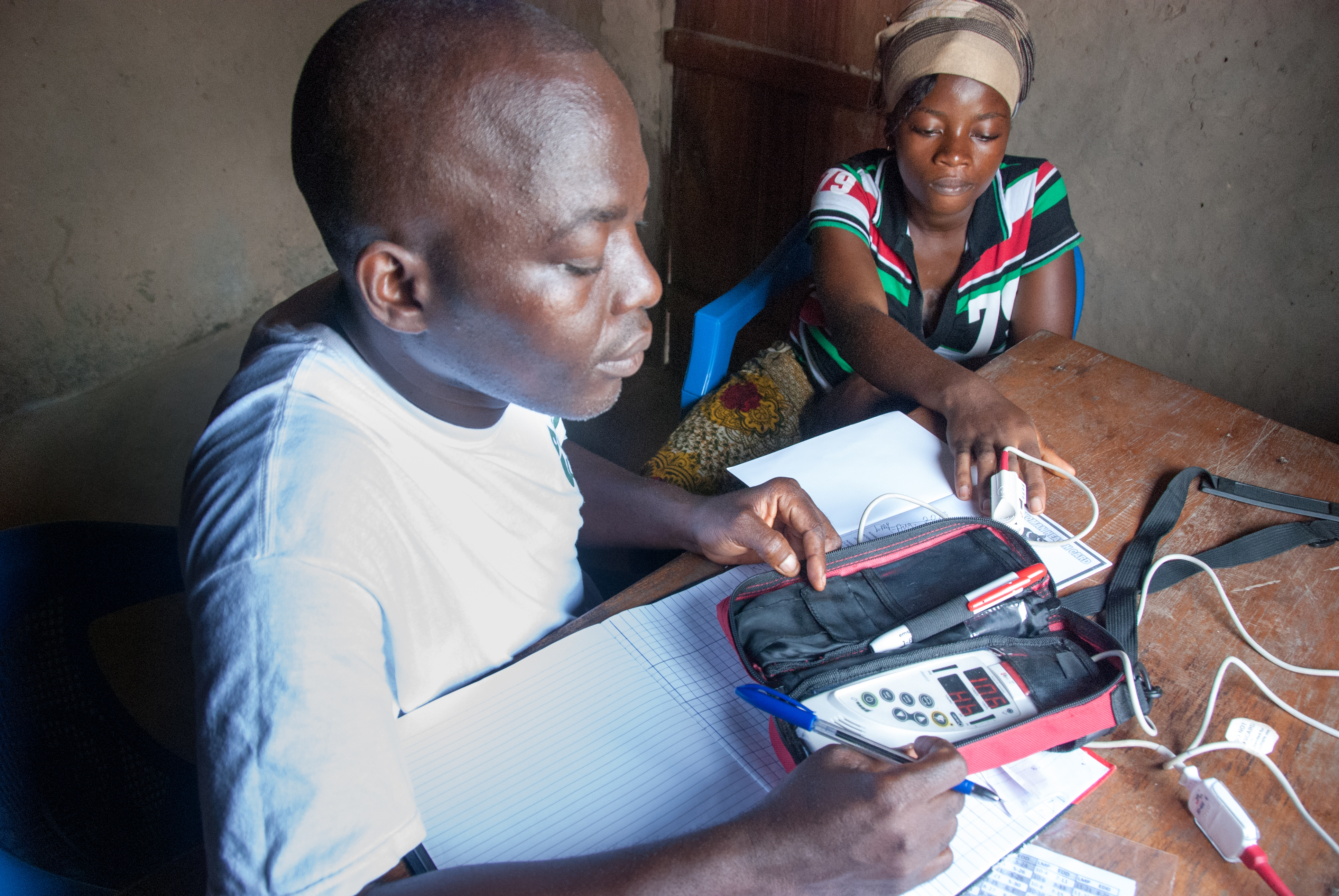Last Mile Health is a Boston-based organization that creates a new workforce to save lives in Liberia’s most remote villages through the recruitment, training and equipping of community health workers.
Dance, decide, pursue.
That’s the way the team at Last Mile Health celebrated Christmas this year. Thankful for the opportunity to celebrate after a hard year, we danced. But we realized our decision - to respond effectively to Ebola and to establish access to quality health care for Liberians, beginning with the most remote - still requires urgent pursuit.

The Christmas season gave staff at Last Mile Health - known in Liberia as Tiyatien Health, or ‘TH’ - an opportunity to reflect on all that had been achieved in the last year, and to take a deep breath before plunging back into the urgent work of 2015. In my view, some of the most poignant reflections have come during speeches made at parties attended by the ‘TH family’.
Speech making is a staple of Liberian celebrations. It is expected that representatives from the gathered groups - whether hosts and guests, or different organizations present - will give a few words of thanks, usually accompanied by some compliments and jokes, and some words of wisdom and encouragement. The audience actively participate, with church-like nods and noises of approval for points well made, and heckling if a speaker goes on too long, or strays into an autobiographical monologue.
Jenny Rabinowich, our Director of Programs, gave the most inspirational speech of the season, with words of encouragement delivered at the Monrovia office Christmas party.
“We have come a long way together, and there’s a long way to go,” Jenny rallied all in attendance, esteeming the value of each person’s contribution to the overall achievements of TH, whether they work in programs, security, finance or cleaning. What Jenny instilled during her speech was a sense of pride, not only in individual achievements, but in the achievements of the Last Mile Health team as a whole in maintaining provision of accessible primary health care while fighting the Ebola epidemic at community, facility and policy levels.

This progress was not something that could have been predicted at the 2013 Christmas party, three months before Liberia reported its first ever case of Ebola Virus Disease (EVD). These cases of a then little-known disease, previously limited to small outbreaks in rural areas, would lead to 8359 suspected, and most likely confirmed cases, and 3569 deaths (as of January 12th). While the focus of the first phase of Ebola response was on trying to limit the cumulative case count, the second phase of the response is on focusing on Liberia’s goal of actively seeking and treating cases, to prevent spread on a micro-level, thereby ‘getting to zero’.
‘Getting to zero’ has become a catchphrase used to describe the process of ending the Ebola crisis that recognizes the nature of Ebola Virus Disease - that a single case can lead to an outbreak - highlighting the necessity of concentrating response activities when cases are identified. The widespread use of ‘getting to zero’ in the global community marks a belief that the end of the epidemic is in sight. As Saad N’Ton, of the national Incident Management System in Liberia, described, Ebola initially attacked as an army but is now behaving like a guerrilla movement, with the present risk being the emergence of ‘hotspots’ as infected people travel and infect others, creating localized outbreaks.
The success of Last Mile Health’s Ebola response work should ensure success in phase 2, as it does not rely on isolated interventions, but on building a broad continuum of care from the village to the Ministry level. We have supported the Liberian Ministry of Health to develop a coordinated, strategic response to Ebola across the country; established Infection Prevention and Control (IPC) programs in all health facilities in Grand Gedeh and Rivercess counties; and trained 316 community leaders and community-based health workers (CHWs) in Ebola awareness raising, with CHWs also conducting active case finding and contact tracing.

Christmas and New Year reflections allowed my colleagues and I to renew our perspective of how each member of our team forms a part of LMH’s wider intervention to protect remote Liberians from the devastating effects of Ebola.
Abraham Nyenow, one of LMH’s Frontline Health Worker Leaders, shared how excited he was to train the Community Health Committee in Peah, a border town with Ivory Coast, to build and manage their community’s Ebola response action plans. Abraham reflected on how LMH’s approach can be considered an investment, saying, “we're doing things in a way that will make sure Ebola won't wipe out villages in Konobo now but also will prevent future outbreaks of Ebola.”

The New Year presented an opportunity to recommit to immediate interventions, and to plan for future work to establish access to primary health care across Liberia. At a celebration hosted by a friend and partner, LMH’s Country Director Josh Albert spoke of the power of deciding that all people deserve access to health care, then pursuing the realization of this, through the establishment of a universally accessible health care system.
The spirit of deciding then pursuing is what has led to Last Mile Health’s tenacity in seeking to establish universal access to primary health care, not reaching to, but beginning with the last mile.
